Dating Hygiene: How To Tidy Up Your Profiles, According To The App Experts
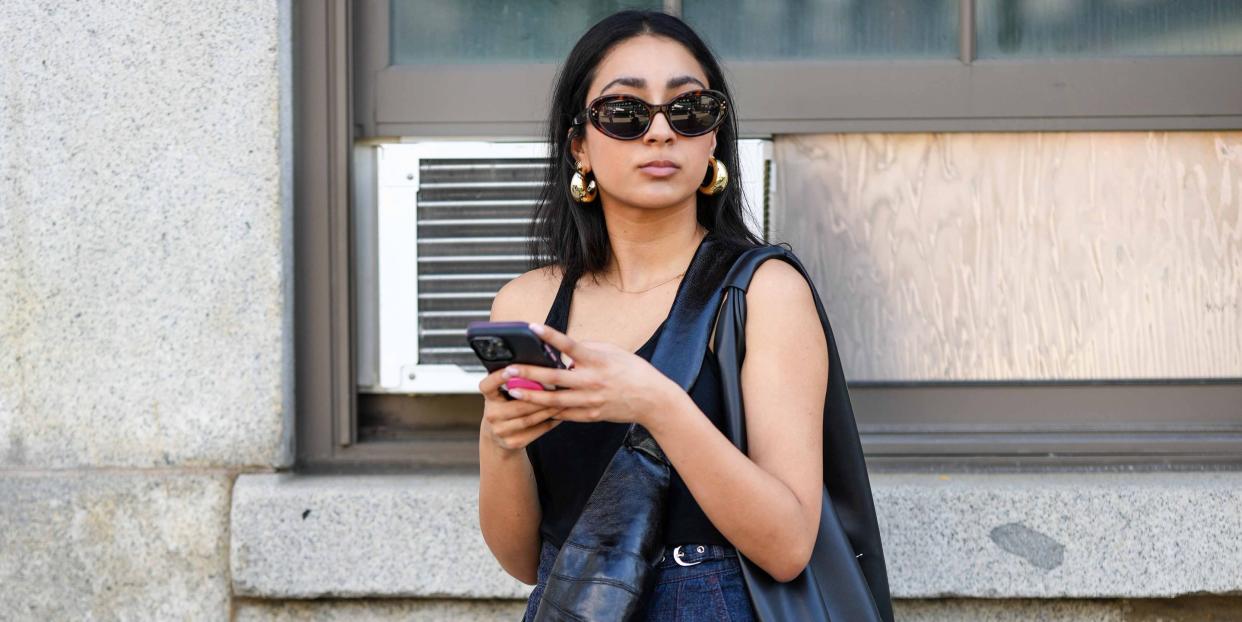
Call this our official complaint to Richard Curtis, William Shakespeare and Nora Ephron. While we’re at it, someone put a word in at Disney for us because we have a big bone to pick when it comes to our understanding of dating.
Throughout childhood many of us grew up believing we’d meet our other half in a ‘meet-cute’ while both reaching for the same coffee at Starbucks. Or spend a summer at a long distant relative’s beach house only to find the ‘one’ lives next door. Such fanciful ideas of romance seeped into our conscious through the television, films and fictional books we consumed as avidly as we did bags of Millions sweets and lashings of Sunny D. Love was a theme at the core of many of a millennial and Gen Z’s cultural awakenings, whether it was through the likes of 10 Things I Hate About You and How To Lose A Guy In 10 Days, or Sleepless In Seattle and Notting Hill. And while many of us resigned to the fact we’d likely never meet a prince or princess and live happily ever after in a gated townhouse in Notting Hill, we all secretly convinced ourselves that love would be just around the corner. A waiting game, nonetheless, but one we’d all eventually win. And then dating apps came into play.
FIND OUT MORE ON ELLE COLLECTIVE
In the shadows of the social media boom of the Noughties, when the likes of MSN, Facebook, Bebo, and Myspace arrived on the scene, the world of apps soon opened its doors, and with them came the possibilities of dating in a modern age without the confines of location and real-time meetings. First came Grindr, in 2009, and then came Tinder in 2012, and then a whole plethora of tiny widgets punctuated our mobile screens, from Hinge and Bumble, to Lex and #Open. Not only did dating apps exponentially increase our chances of meeting new people from around the globe, but it made dating more efficient and separated the wheat from the chaff to help users find the one – or two – for a night, a week, or even for life.
Unsurprisingly, it also brought its drawbacks; the paradox of choice, the time and effort it takes to make a ‘match’ a success, the unwanted sexual messages, the ghosting, the curated profiles – the list goes on. And that’s not to mention the effects of the global pandemic in 2020, making digital dating not only a must for many amid social distancing, but a vital love line for those searching for intimacy, excitement, and hope.
But in the silent wake of Wednesday night pot banging for the NHS and dust-gathering face masks, many people have questioned whether the glow of dating apps has dimmed in light of the pandemic, and fuelled a growing feeling among young people that digital dating is the failure of romantic connection – not its future. In November 2023, Reddit users took to the platform to dispute the pros and cons of dating apps, with one writing: 'Lots of fun conversations but ghost city when trying to get a number or plan a date.'
'Dating apps have become the kiss of death for male reproductive success,' reads a line from author and scientist David Baker's book, The Shortest History of Sex. Meanwhile, publications like the Guardian, Dazed, and Wired have all written about the so-called demise of the dating app in recent years.
But is the dating app dead, or is it just time we update the way we use, or better yet, take advantage of it? After all, if the world of dating has changed, perhaps it’s time we do too.
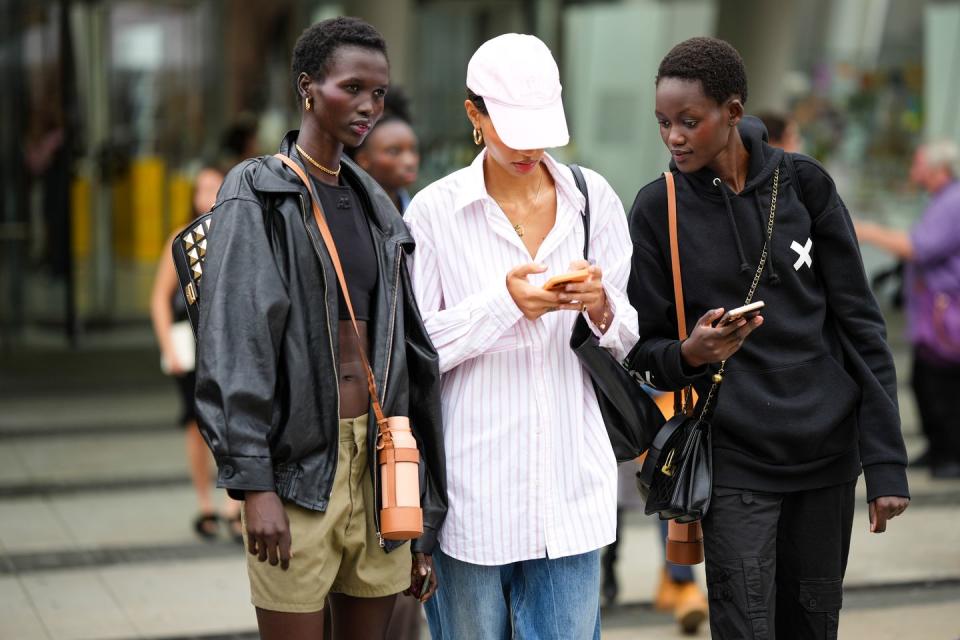
We spoke to a range of dating coach and behavioural experts from some of the world’s most popular dating apps to find out how we can tidy up our dating profiles and employ better ‘dating hygiene’ to ensure we’re making a success of digi-dating, be it for a fling or a forever romance.
What is the biggest mistake women, in particular, are commonly making when it comes to dating?
According to Logan Ury, Director of Relationship Science at Hinge and recent Diary of a CEO podcast guest, one of the biggest issues she encounters in modern dating is the focus on ‘the spark’. ‘Of course, we all want to feel drawn to our partners, but it’s a mistake to reject someone because you didn’t feel that attraction right away,’ she tells ELLE UK. ‘For most people, it takes time for that feeling to develop. Instead, I recommend people go after the slow burn — the person who may not initially feel as exciting, but will make a great long-term partner.’
Another issue lies in the delay between making a connection and taking their interaction off-app, Ury continues, reminding users that the whole point of apps is to make an in-person interaction in the end. She suggests that three days of chatting on an app is a good amount of time before suggesting an in-person date. ‘It gives you enough time to build that foundation of trust, but it’s not so long that the momentum drops off. It can be a bit nerve-wracking to ask someone for their number, so why not switch it up and give them yours? If the conversation is flowing, write something like “Let’s switch to text. Here’s my number”.'
What is good ‘dating hygiene’?
In much the same way that you might embark on a spring clean once a year, or set aside a Sunday afternoon to tidy your bathroom cupboard, the experts agree that you regularly tend to your dating apps.
In addition to being more mindful and intentional with how and who you date, it’s important to have a regular ‘clean up’ of your apps to ensure old connections don’t cloud your judgement or create a sense of indecisiveness, says Dr Caroline West, Bumble’s Sex & Relationships Expert. ‘Clean up your inbox, get rid of those connections that weren’t quite right and keep a clear vision of who you want to invest your time in.’
Then, it’s time to invest time building a profile that ‘best represents who you are, what you’re looking for, and offer up opportunities for connection'.
Here is Dr West's top three 'dating hygiene' hacks on Bumble:
Build your bio: ‘It feels simple, but your bio remains one of the most important features on your profile. Make sure you let your personality shine through with emojis or nods to pop culture that reveal what you’re into. Recently in the UK (data from August-September 2023), those who completed their bio saw an average of 40% more matches than those who did not.
Break out the badges: Basic info badges can be filtered by lifestyle information like drinking and smoking preferences, or political views, meaning you can stand firm on your non-negotiables. If you’re looking for someone who is really into hiking, or maybe a cooking pro, adding featured interest badges at the top of your profile can help you stand out and find someone with similar interests.
Get verified: Let your matches know that you’re a real person who is looking for an authentic, meaningful connection. People in the UK who verified their Bumble profile saw an average of 79% more matches than those who did not. On Bumble, you can also prompt your match to verify themselves if they are not already.
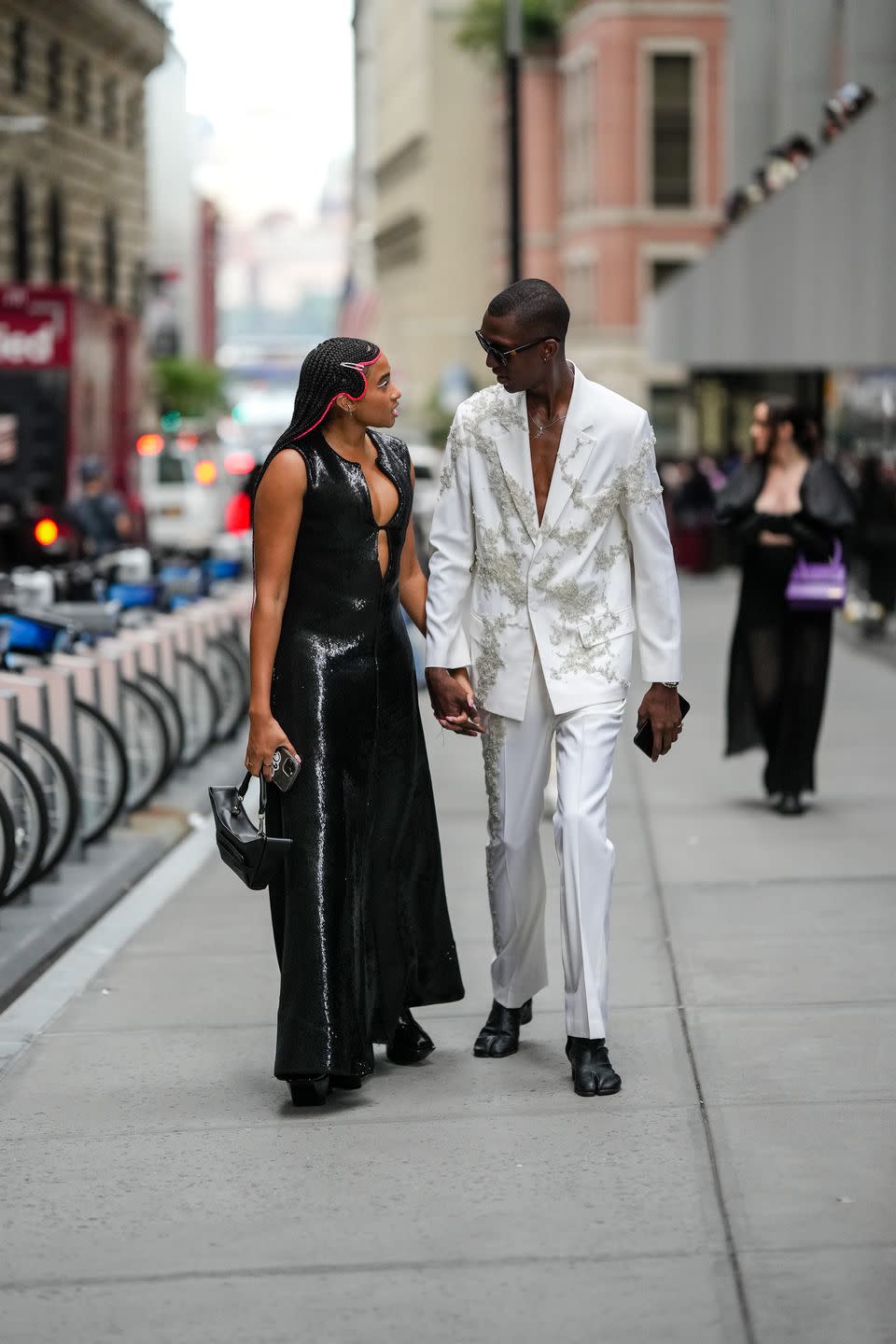
Ury says there are several keys to good ‘dating hygiene’, and it starts with fostering the correct dating behaviour:
Sustainability: The people who find success are consistent. Don’t date so much that you burn out, and don’t date so little that you’re not meeting new people. You want to date at a pace you can keep up.
Choose the right pictures for your profile: Include photos that clearly show your face, your full body, you doing something you love, and you with friends or family. Don’t make it hard for us to see what you look like by including filters, sunglasses, or other people who look like you.
Write like you mean it: For your profile, choose your Prompts thoughtfully. Don’t go with one-word answers or your Instagram handle. Put effort in and avoid cliches.
Be intentional: Be upfront and honest with your dates about who you are and what you’re looking for. You can start by adding your Dating Intentions to your Hinge profile.
Take a pause when you need it: If you need a break from dating, take it. You can pause your profile so that you’re not shown to new people and can focus on other priorities or getting to know someone special.
Don’t ghost: Rejection can hurt, but people would rather be told when someone isn’t interested. You don’t need to get into all of the details of why, but it’s important to break things off with them as soon as you know you’re not interested.
What makes a good dating app profile?
In addition to navigating awkward first kisses and working out when to initiate a conversation, building up an app profile can be one of the most excruciating tasks to tick off when it comes to getting on the ‘field’ in the first place.
For Paul Brunson, Global Relationship Insights Expert at Tinder, with its 530 million downloads and 75+ billion total matches, a good dating app profile includes:
An authentic photo: Your pictures should give others a sense of your personality, hobbies and interests. If you like to go wine tasting or hiking, include yourself having fun - action shots are a great conversation starter. Just be mindful of including group photos, we know that you have loads of friends but pictures that just feature you are better than group shots. And also, drop the filter - people want to see the real you.
Show some flair: Your bio is a great opportunity to let your personality shine through. Tinder reveals the optimum amount of words in a Tinder bio has between 15-45 words. So including something as simple as a new TV show you are crazy about, your favourite TikTok trend or the holiday destination you’re dreaming about, could catch someone’s attention and spark a connection.
Write a great opening line: Engage with your match by typing something that shows you took the time to read their bio and look at their profile photos, whether this be the context of a photo or an interesting insight they’ve shared. While there is no one-size-fits-all opening message - it's really simple: be friendly and respectful. Genuinely take an interest in learning more about them as you’ll quickly gauge whether the spark could turn into a flame.
Ury agrees, noting that users should show potential matches who they are, not who they wish they were. ‘Your profile is a chance to show us your authentic self, not your aspirational one,' she says. 'Choose photos that are flattering but accurate.' In layman's terms, stop posting photos of yourself from 10 years ago, and share the here and now.
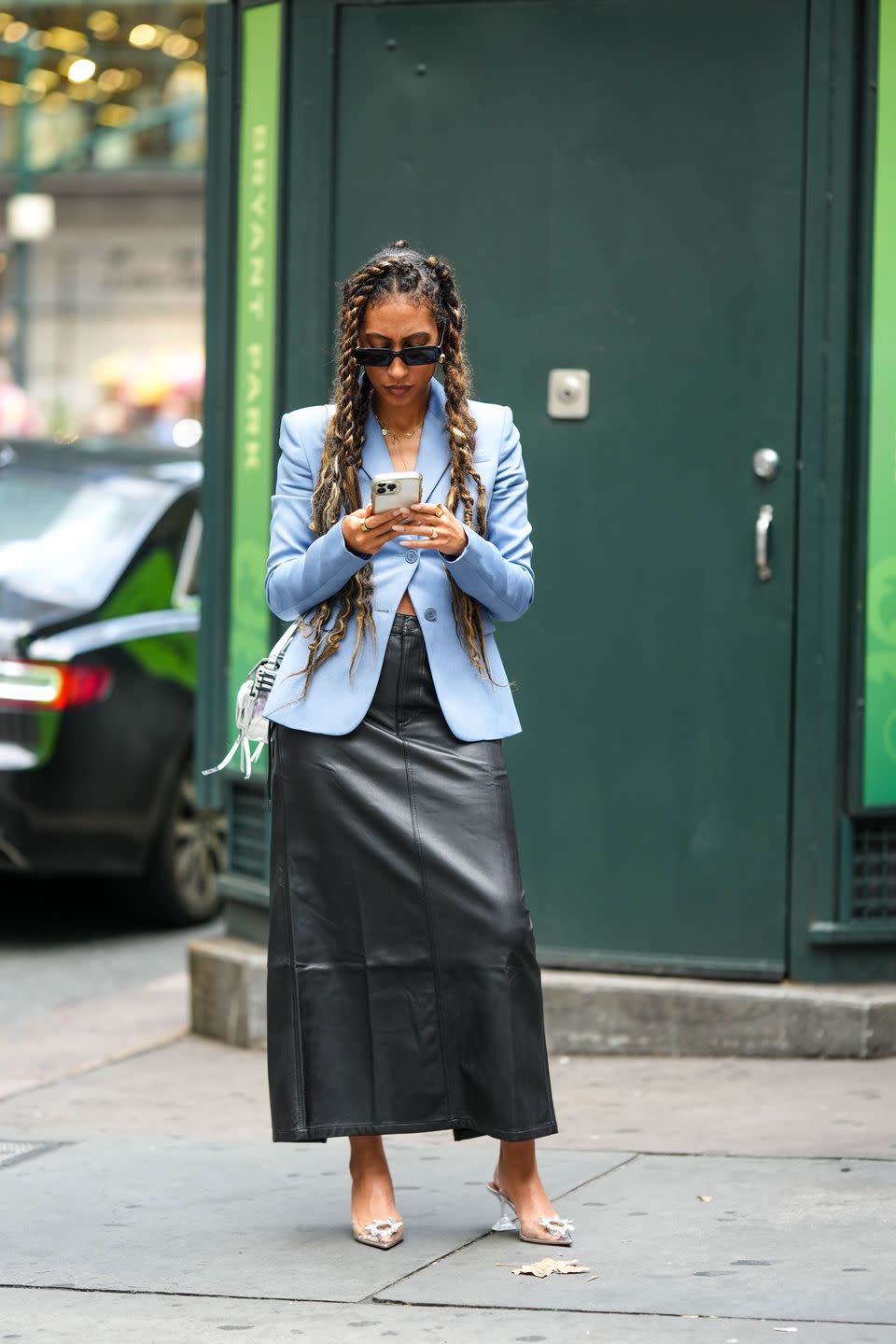
It's also important, she says, to be specific in what you’re looking for. For example, Hinge offers a number of features that let you be clear from the beginning about what you’re looking for, such as the ‘Relationship Type’ feature to let potential matches know if you’re looking for monogamy, non-monogamy, or are still figuring it out. Users can also set their Dating Intentions to share if they're looking for something serious or more casual. In the same way you'd prefer a potential match to be upfront about their intentions, remember to set yours, too.
How should users apply the 'swipe' rule?
We’ve all been a bit too ‘trigger happy’ when swiping through profiles while lying down horizontally on the sofa, or spending so much time on a dating app that every face starts to look like the same. So how do we avoid dating app fatigue?
Dr West recommends adopting the ‘rule of three’ and choosing the three qualities that are most important to you when finding a match – one physical, one emotional and one lifestyle trait. If someone ticks your three boxes, 'there’s a higher chance you'll align so the connection is worth exploring, and those that tick one or two are likely worth exploring too',' she explains. Of course, a potential date doesn’t have to meet all of your requirements, but you’ll need to be open and honest to yourself and to them if you ultimately want to see where a match could go.
While it’s common for people to take potential matches on face value – quite literally – there’s more than meets the eye, and this is no more true than in the world of dating, Ury notes. 'Take a look at their profile and see if there is something about them that makes you curious,' she suggests. 'Who is that cute dog in their picture? When did they go to Greece? Why do they have an irrational fear of riding a bike! Send them a message that shows you put effort and are interested in learning more about them.’
What’s the best way to start a conversation?
Making the first move in dating may be a cardinal sin to some, but Brunson advises users to embrace ‘the inner cringe’. After all, Tinder’s data reveals that 64% of young singles are comfortable with awkward situations if it's in service of being genuine. Often, this might involve starting off a conversation with a question, or finding something curious in a dater’s profile that might spark a discussion.
For Ury, starting a conversation with a comment will help you stand out from your ‘competition’ (71% of Hinge daters have said that a conversation is more likely to be successful if it starts with a comment). Also, instead of asking generic questions like ‘How is your day going?’, be specific about a match’s profile or interests. For example, ask ‘What’s your favourite book on your shelf?’ or 'What was the last film you saw?' Above all, be open-ended and use questions that require a match to elaborate.
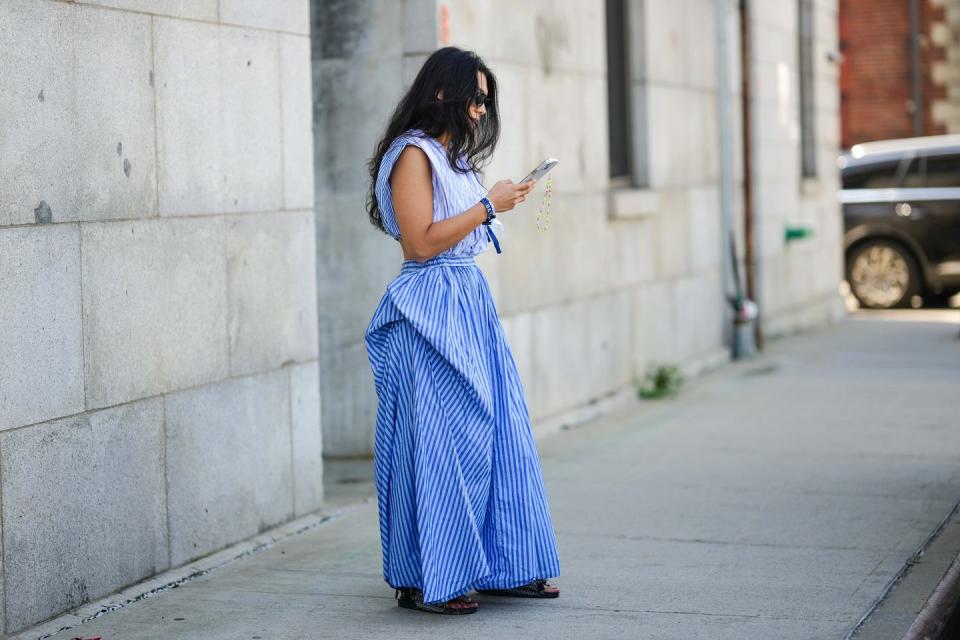
What should be avoided/prioritised when it comes to dating apps?
We’re all guilty of swiping right on a person with far too many pictures of themselves on a night out with their friends, clutching a bottle of Jack Daniels; and we're all guilty of questioning why a potential match doesn’t have any photos of themselves post-gap year on their profile. But, according to Ury, we should be more specific when it comes to the dos and don'ts of dating app usage:
Avoid beige flags. A beige flag is when your profile is full of cliches and you fade into the background or seem like you didn’t put effort in. Stand out from the crowd and show the real you. Stop talking about your love for The Office and start telling us about your secret hobby as a herbal tea connoisseur.
Keep your profile up to date. Your profile should reflect who you are, not who you were. Yes, you might look great in that one picture from five years ago but it’s not a reflection of who you are now. Take the time to choose flattering, accurate pictures that show your interests and personality. And don’t just stop there. Regularly refreshing your Hinge profile with new information about yourself will help you get more matches and likes.
Avoid small talk. Answer the prompts in a way that encourages more in-depth conversation and leads to more meaningful connections. In other words, no one-word answers, please! Whatever it is you love about who you are, make sure other people can see it.
For Dr West, prioritising one’s mental health when using dating apps is key. ‘Dating apps are a great way to build your confidence and forge meaningful relationships, but knowing when to take a break is also vital,’ she says. ‘If you’re starting to feel burnt out, take a step back. You can set aside dedicated time to intentionally look for someone on a dating app. Spend time really absorbing people’s profiles to understand their interests and values to see if they are someone you’d be interested in pursuing.’
How should we be rethinking the ‘ick’?
The ‘ick’, as it’s now known, is a slang term for the feeling of disgust or aversion towards someone and something. For some, an ick might be whistling, being rude to staff, having bad table manners, swimming with goggles or running to pick up sweets from a piñata (blame the internet). However, the dating experts argue that we shouldn’t let an ‘ick’ be a dealbreaker before we’ve given someone a chance.
‘It could just be that you don’t know your match well enough and assumptions have been made. Relationships are based on compromise and communication, while also maintaining your own authenticity - it’s a fine balance,’ argues Brunson.
For Ury, finding an ‘ick’ is a poor yet common excuse people use to avoid getting close to someone, and can often be confused for a pet peeve. ‘A pet peeve is something that annoys you, maybe it is a velcro wallet or socks and sandals, but you could get over it. A deal breaker, on the other hand, is a fundamental incompatibility,' she says. While there's social capital from hilarious dating stories (hello, 'date-entertainment'), it's important you ask yourself whether you're dating for other people's enjoyment or for a real connection.
How has the dating field changed since the pandemic?
If you thought your views of dating and habits around securing a match had changed since the pandemic, rest assured that you’re not the only one. Brunson explains: ‘Influenced by the pandemic, people are now placing more value on their own time and their potential matches’ time. From errand dating to stack dating, Tinder’s research reveals 51% of Gen Z are open to new ways of fitting dating around their daily schedules.’
So what does that look like in reality? According to the expert, users are over playing games and want to make dating as efficient as they do a day at work. As many as 77% of Tinder members admit they reply to a crush within 30 minutes, 40% respond within five minutes and over a third reply immediately. Meanwhile, approximately 68% of Tinder members say they use the app while at work and 32% have even met up with a date during the workday.
Meanwhile, Dr West says that the pandemic unpacked a number of expectations and assumptions many of us have fostered about the way we date and, for many people, it has led to a ‘big resentment’. ‘We’ve since seen that people are not willing to compromise in their dating lives, especially with what they value whether it’s shared passions, lifestyles or even their time,’ she explains.
However, rather than it making daters more serious than ever before, Dr West argues that our definitions of what a ‘successful’ relationship have changed for the better, as have our values around casual relationships, non-monogamy, 'wanderlove', and being 'consciously single'. According to the app’s research, in 2023 one in two people in the UK were more open to dating beyond their ‘type’, otherwise known as ‘open casting’. ‘It’s encouraging to see people, particularly women, doing away with the parameters of tall, dark and handsome, or requirements for a six-foot tall partner, which are limiting and may not serve them,’ Dr West adds.
ELLE Collective is a new community of fashion, beauty and culture lovers. For access to exclusive content, events, inspiring advice from our Editors and industry experts, as well the opportunity to meet designers, thought-leaders and stylists, become a member today HERE.
You Might Also Like


